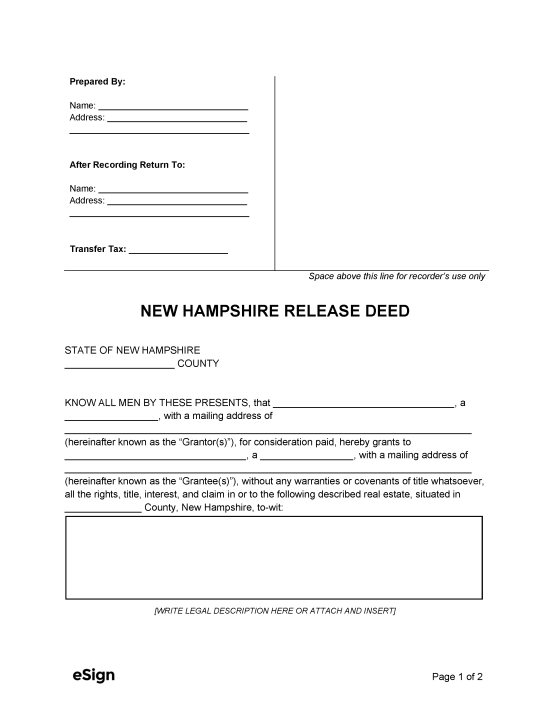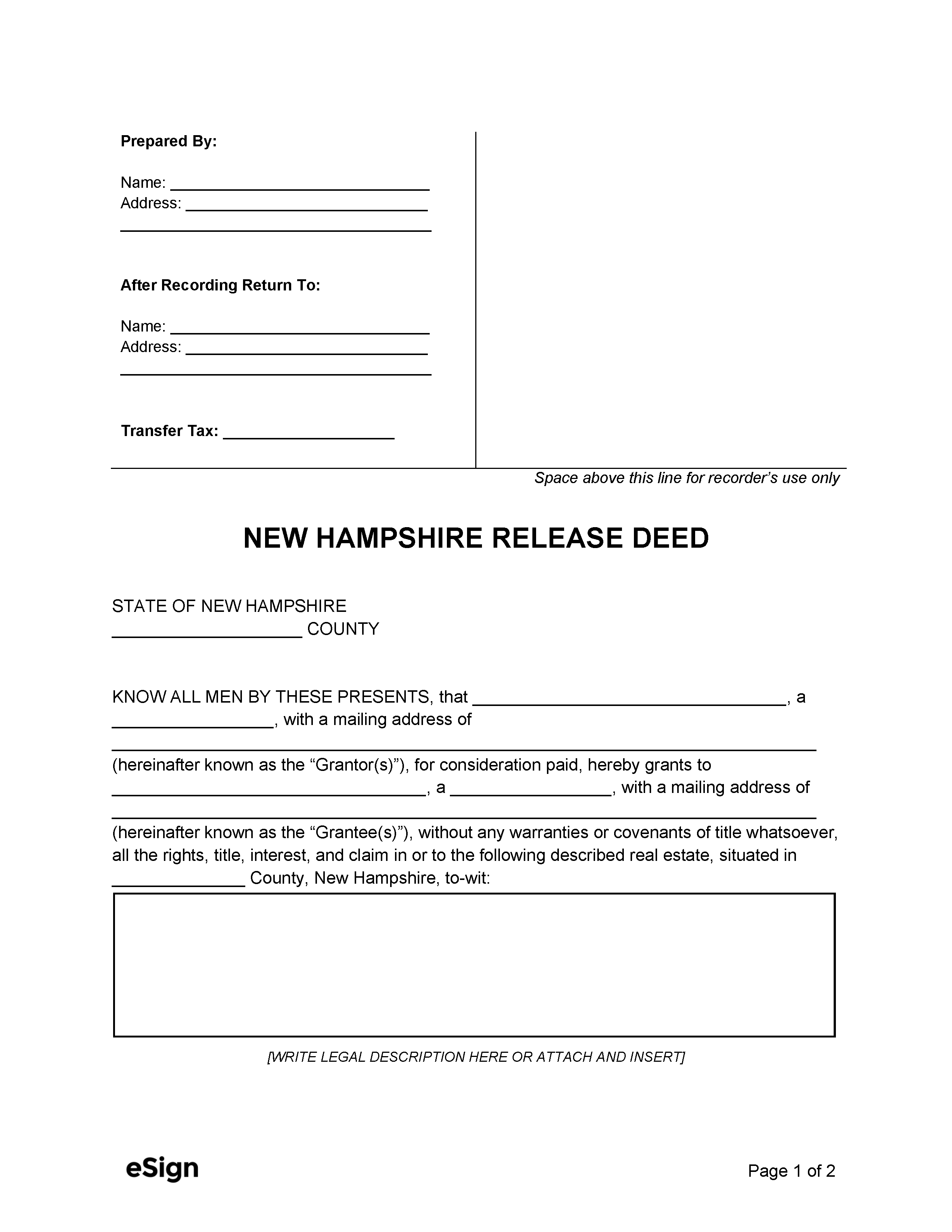Recording Details
- Signing Requirements – The grantor’s signature must be notarized.[1]
- Where to Record – Register of Deeds[2]
- Recording Fees – $35 for the first page, $4 for each additional page[3]
Formatting Requirements
While formatting specifics are not outlined in statutes, documents are required to comply with the standards set by the Register of Deeds, which generally include the following[4]:
- Margins: 3″ margin at the top right of the first page, 1″ margin on all other sides
- Font: 10pt or greater
- Paper:
- 8.5″ x 11″ minimum, 8.5″ x 14″ maximum
- White paper
- 20-pound weight or more
- Ink: Dark blue or black

